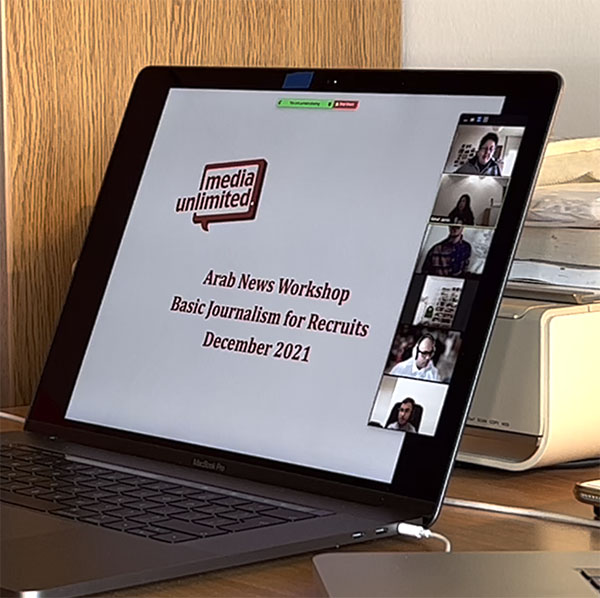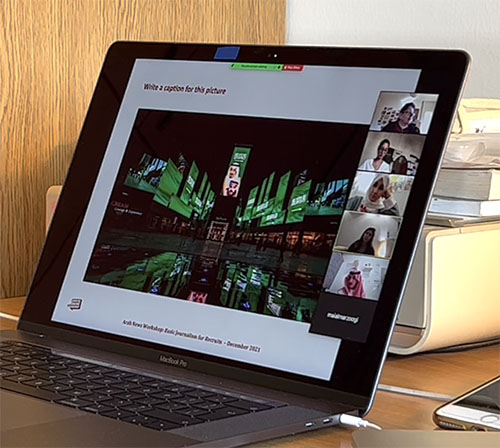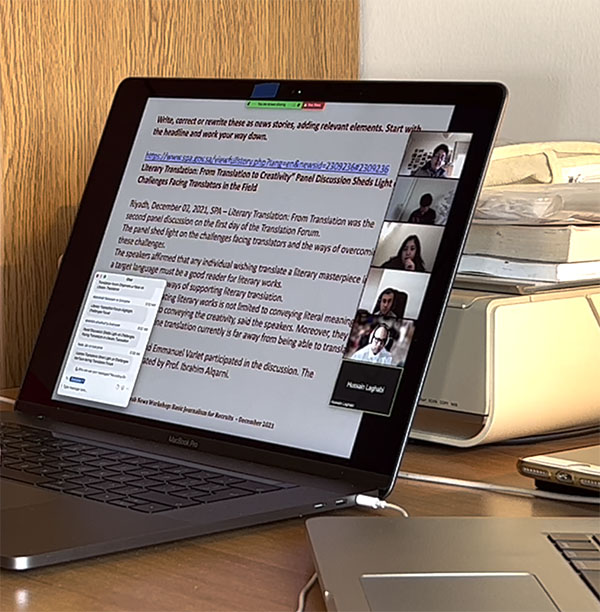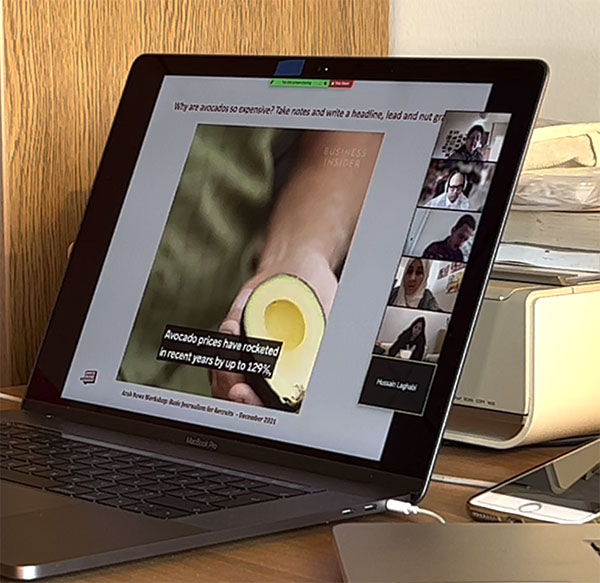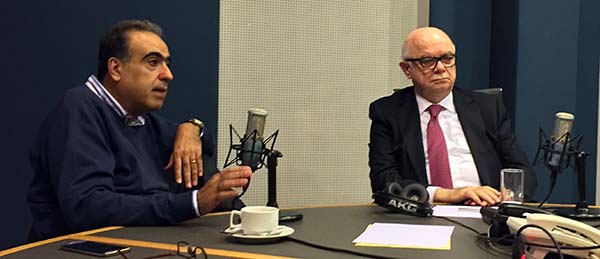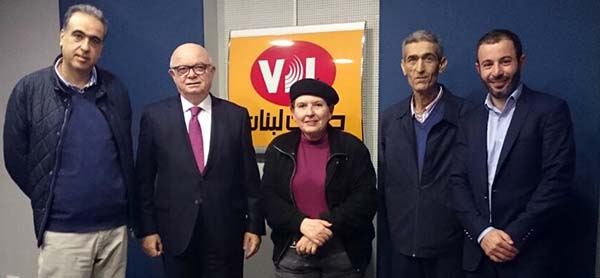Lebanese media seem ethically unmoored amid a revolution that began in October 2019 with the spread of misleading, suspicious and unverified news via WhatsApp and other means, Magda Abu-Fadil told Radio Monte Carlo Doualiya’s “Digital” program.
“Unfortunately, traditional and social media platforms are used as weapons to launch verbal wars among parties, individuals and political groups,” said the Media Unlimited director.
She said countless journalists acted unprofessionally and lacked the requisite background in history, geography, economics and politics in which they’re mired and which they don’t fully comprehend.

Radio Monte Carlo Doualiya’s “Digital” program
“They’re spoon-fed by politicians and they’ve been bred on this,” she said, adding that she wouldn’t generalize because there are professional and articulate journalists.
Since the uprising began on October 17, there’s been an abnormal slide downward, and journalists working for TV channels, for example, have been using hashtags to attack assorted and sundry on social media, Abu-Fadil noted.
“That’s unacceptable, it diminishes their credibility,” she said.
Journalists have also been seen arguing heatedly, or practically fighting, with demonstrators in Lebanon live on the air over political and other issues.
“Journalists should not become the news,” cautioned Abu-Fadil. “Journalists cover the news, but some of them have over-inflated egos and consider themselves newsworthy, which is a big mistake because there’s a red line they shouldn’t cross.”
Another issue she touched on was the upsurge in coverage of humanitarian cases with the growing impact of the economic crisis in Lebanon and TV channels competing to show the most misery by barging into people’s homes with their microphones, lights and cameras to highlight the decrepit houses and horrible conditions in which they live.
“They ask questions like ‘how do you feel living in a house that’s crumbling over your head?’ It’s shameful,” she said. “There’s people’s dignity to consider.”
Abu-Fadil said it was the responsibility of the journalists and those who direct news teams to demonstrate more sensitivity and ethics in such reporting, adding that there’s an obvious lack of training.
“Quite often it’s also because there isn’t enough time: Journalists tell me ‘you train us and give us advice, but the boss says we can’t do it, or the editor says there isn’t time,’” she said. “That’s unacceptable, there’s such a thing as media ethics.”
A sad case study she mentioned reflects the reality of the situation.
A veteran journalist wrote an op-ed in a major Lebanese Arabic-language newspaper which he plagiarized in its entirety from an article that appeared earlier in English, also in Lebanon.
When the original author exposed him on Twitter, the journalist apologized, but it was a lame regret.
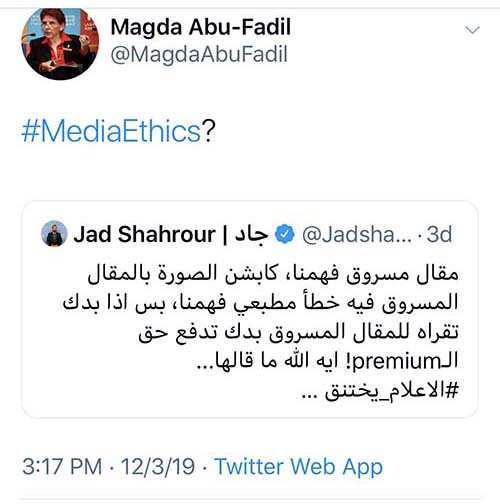
Magda Abu-Fadil’s reaction to a tweet about the plagiarized article
“It’s clear the person who plagiarized, who stole the article, has no ethics, is lacking in creativity, because he reached a dead end, where he couldn’t write any more,” Abu-Fadil said. “It happened to me years ago when I was a correspondent in Washington and the bureau chief used to steal my articles and delete my byline from stories or scoops and reports to make it appear as if he wrote them.”
Abu-Fadil said journalism education must keep up with the state of the industry and technology and journalists should attend regular workshops to update and upgrade their skills to be fully functional in a digital multimedia ecosystem, notably when faced with crises such as the one Lebanon is experiencing.
